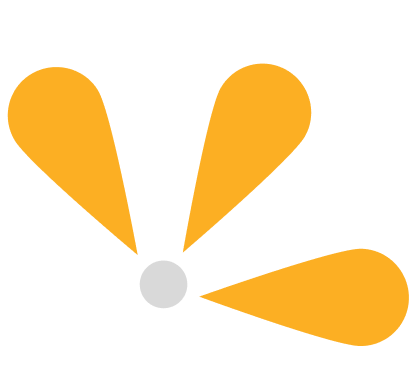Our Fields of Study Explore more than 120 programs of study!
✔ A variety of training options to match your goals
✔ The difference between technical and pre-university programs✔ Tips to help you choose the right path
✔ Find the program that fits you—and opens doors for your future
How to Choose the Right Program?
Thinking of studying in Québec, Canada—but not sure which program is right for you? Here are some helpful tips to guide your decision.
Choose the Right Type of Program
Do you want to join the job market as soon as possible?
A technical program might be your best fit. Most of these three-year programs prepare you for an entry-level job in your field after graduation.
Do you plan to go to university?
A two-year pre-university program is the best option.
Already have job training and want to enhance your skills?
Short-term training could be the right choice.
Our Training Options
Here is a description of the different types of training options.
Technical Programs
Most cégep programs are technical in nature. They usually take three years to complete and include:
- General education courses: French, English, philosophy, physical education
Program-specific courses: 15 to 31 courses depending on your field
-
Two complementary courses
While these programs lead directly to the job market, some also allow for university studies afterward (under certain conditions).
The diploma awarded: Diploma of College Studies (DEC)
What makes technical programs stand out:
- HANDS-ON INTERNSHIPS
Some are even paid. These workplace experiences help you develop real-world skills.
- ACCESS TO GREAT JOBS
From 2022 to 2031, nearly 1.6 million jobs will open in Québec. With a technical DEC, you’ll have a strong chance of starting your career right after graduation—as a technician or technologist.
- CÉGEP–UNIVERSITY PATHWAYS
Some programs allow you to fast-track your university studies by reducing the number of credits required.
Pre-University Programs
These programs are usually completed in two years and prepare you for undergraduate university studies.
Is this the right choice for you?
- You don’t meet the direct admission requirements for a Québec university
You want more time to explore a subject before picking a university program
Choose your pre-university program carefully, based on your future university plans. Some programs require specific cégep backgrounds. Changing fields later may require extra courses.
University programs with limited enrolment (called contingenté programs) have competitive admission. Universities assess your application using criteria like your R-score, which ranks your academic performance among peers.
The diploma awarded: Diploma of College Studies (DEC)
Short-Term Training
Cégeps also offer short-term programs, usually completed in 6 to 18 months.
These are often chosen by adults who already have work experience or prior training. Many are professional development courses with specific prerequisites.
Not all short-term programs are open to international students. Visit the cégep’s website to check the list and your eligibility.
The diploma awarded: Attestation of College Studies (AEC)
Short-Term Mobility Stay
Do you want to study at a cégep for one or two semesters or do a professional internship lasting a few weeks?
The short-term mobility stay is the option chosen by hundreds of students from around the world who come to complete a professional internship in a workplace or an observation internship thanks to the cégeps’ international mobility agreements. These internships help students acquire or improve the skills needed to practise their profession. It is also possible to study for one semester and then do an internship. Cégeps make administrative procedures easier and support international students in choosing their internship, courses, and housing.
To prepare for a short-term mobility stay (internship and/or studies) at a cégep, contact the international relations office at your educational institution to learn about existing agreements with cégeps and the steps to follow to complete an internship or study session in Québec.
Agreements between foreign institutions and cégeps
Cégeps have signed numerous mobility agreements with foreign institutions, including more than sixty with France’s Instituts Universitaires de Technologie (IUT).
The Fédération des cégeps has signed a framework agreement with the following networks, notably to increase international student mobility:
France
- Le Réseau National d’Enseignement Supérieur Privé (RENASUP) regroupant 515 établissements;
- Le Syndicat national des chefs d’établissement d’enseignement libre (SCNEEL) regroupant plus de 2000 chefs d’établissements dirigeant quelque 2500 unités pédagogiques, écoles, collèges et lycées.
Belgique
- La Fédération de l’enseignement supérieur catholique (FédESuC) SeGEC, regroupant notamment sept Hautes Écoles;
- Le Conseil des Pouvoirs Organisateurs de l’Enseignement Officiel Neutre Subventionné (CPEONS).
Mexique
- L’Association nationale des Universités technologiques (ANUT) regroupant l’ensemble des 110 Universités technologiques du pays;
- L’Association nationale des Universités polytechniques du Mexique (ANUP), qui représente les 50 Universités polytechniques du pays.
To prepare for a short-term mobility stay, contact the international relations office at your educational institution.Demander à ChatGPT
Other Pathways
Cégep–University Pathway (DEC–BAC)
Some technical programs (typically three years in length) are specifically designed for students who wish to continue their studies at university after cégep.
The “DEC–BAC” pathway allows certain cégep courses to be credited at university. Since the programs are in the same field of study, the total duration of your studies may be shortened by up to one year. These programs are called DEC–BAC because you receive both a Diploma of College Studies (DEC) and a university bachelor's degree (BAC), which is the first level of university education.
The “DEC–BAC bridge,” on the other hand, refers to the transition from a cégep program to a related university program. It can allow for exemptions from certain university prerequisites and/or recognition of university-level courses. This can lighten your university workload, although it may not reduce the total length of your studies.
The DEC–BAC and the DEC–BAC bridge are good options if you already know that you want to pursue university studies after cégep.
The diplomas awarded upon completion of the DEC–BAC or cégep–university bridge pathway are the Diploma of College Studies (DEC), followed by a bachelor's degree upon successful completion of the university program.
Dual Degree
These programs allow international students to study in two countries and obtain two separate diplomas. In addition, the duration of technical studies in Québec is shorter thanks to course equivalencies.
Dual degree programs are only available at certain cégeps in Québec, as a formal agreement must be established with a partner institution abroad to offer this type of program.
Benefits of a dual degree
- Allows graduates to work either in Québec or in their home country
Shortens the length of studies in Québec
Interested in a dual degree?
Contact the international advisor at your educational institution to learn more about the opportunities available.
Need Help?


Fields of Study
Explore the 20 fields of study offered at cégeps. Click on the field that interests you to view detailed program profiles for each area.
- Business, Commerce and IT
Agriculture and Fisheries
-
Food and Tourism
-
Arts
-
Building and Public Works
-
Wood and Related Materials
-
Chemistry and Biology
-
Communications and Documentation
-
Electrotechnology
-
Motorized Equipment Maintenance
-
Environment and Land Use Planning
-
Mechanical Manufacturing
-
Forestry and Paper
-
Industrial Mechanics
-
Metallurgy
-
Mining and Civil Works
-
Pre-University
-
Health
-
Social, Educational and Legal Services
-
Transportation
